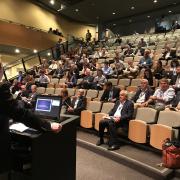
The 36th International IWLA Conference focused on the challenges of climate change
Organised around this theme, the 36th International Wine Law Association (IWLA) Conference has brought together in Napa 150 legal professionals from around the world in order to gain understanding of the legal consequences of these issues.
On 1-3 October 2018, the IWLA held its international conference in Napa (USA), covering the necessary development of wine law particularly in the face of the challenges of climate change. During the opening of the two sessions devoted to these issues, the OIV Director General took the opportunity to reiterate how this topic has become a priority among the strategic axes developed by the OIV. These axes are established in order to consider the environmental, societal and economic objectives of the industry, and form part of a holistic approach seeking to ensure the sustainability of the vitivinicultural sector.
The communications and discussions surrounding this theme, which was chosen by the Californian hosts of the Conference, were very valuable. In particular, speeches from academics from Stanford and Berkeley and from professionals provided better understanding of initiatives implemented by companies in the sector with their societal and environmental responsibilities in mind, taking as examples the Champagne sector in France or E. & J. Gallo in California.
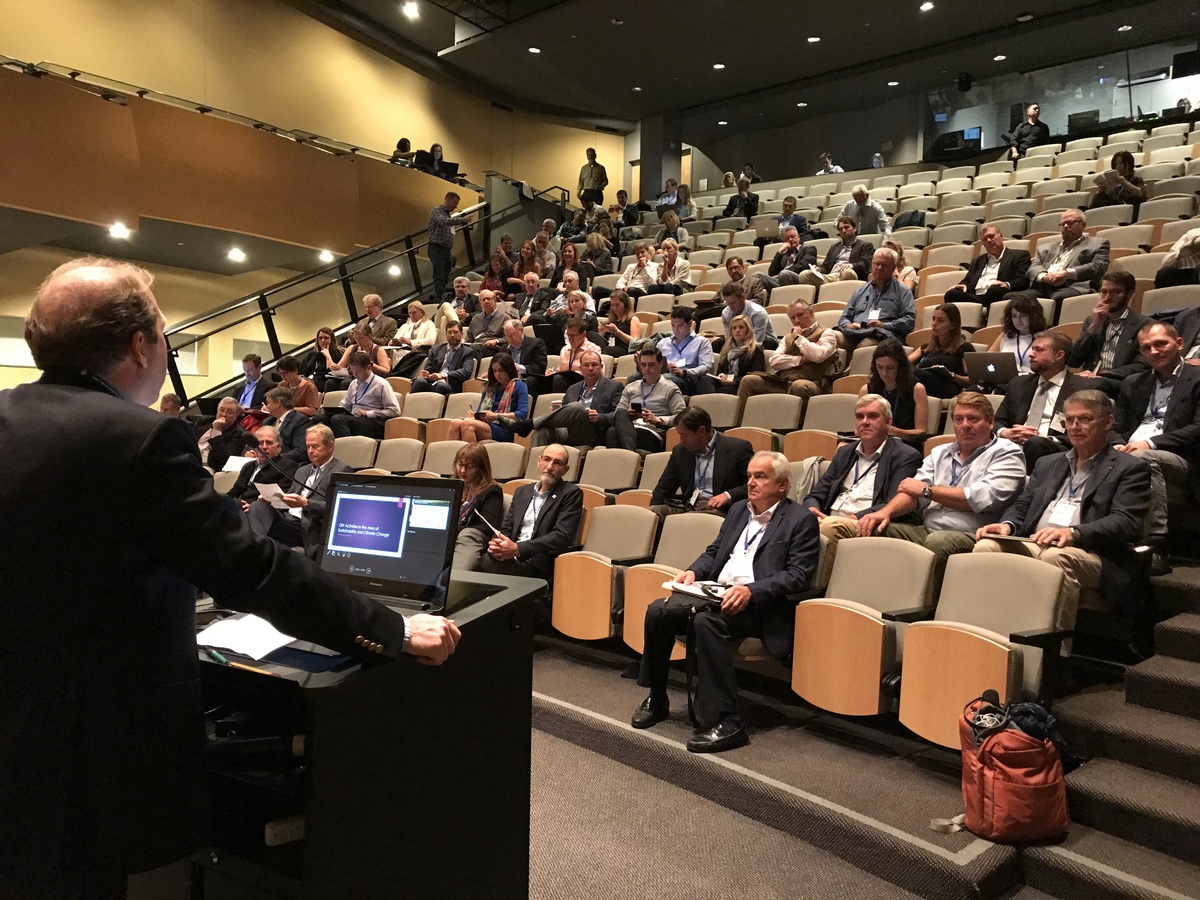
Wine civilisation and its responsible consumption by Ernest Gallo
During this visit, Jean-Marie Aurand travelled to Modesto (USA) where he visited Gallo’s headquarters and imposing installations, and met with Ernest Gallo. It was an opportunity to commemorate the 25th anniversary of the declaration made by his grandfather Ernest Gallo during the OIV Assembly in San Francisco in 1993, which had the aim of promoting wine civilisation and its responsible consumption and enabled the founding of the “Wine and Health” Commission within the OIV thanks to USA support.
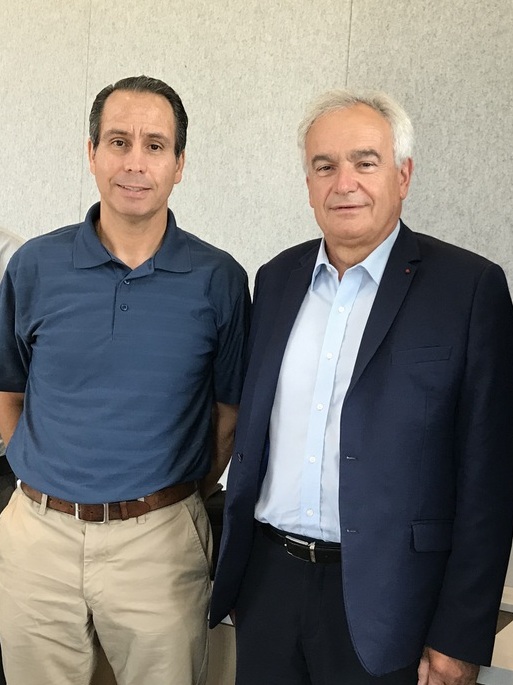
The implementation of analytical standards developed by the OIV
The OIV Director General was also able to see the importance and the implementation of analytical standards developed by the OIV during a visit to ETS Laboratories. ETS founder Gordon Burns presented the microbiological analysis unit, which allows for early detection of the risks of contamination by undesirable bacteria, yeasts or spores.
Meeting with students in the sector
This visit was also an opportunity to present, at CAL POLY (the California Polytechnic State University), the major economic trends and issues of the sector. During these exchanges with the students and the head of the Wine and Viticulture department, Dr Benoît Lecat, Jean-Marie Aurand spoke at length on the social and societal environment that influences the vitivinicultural sector and the need to ensure adequate training for those that will lead the sector in the years to come.
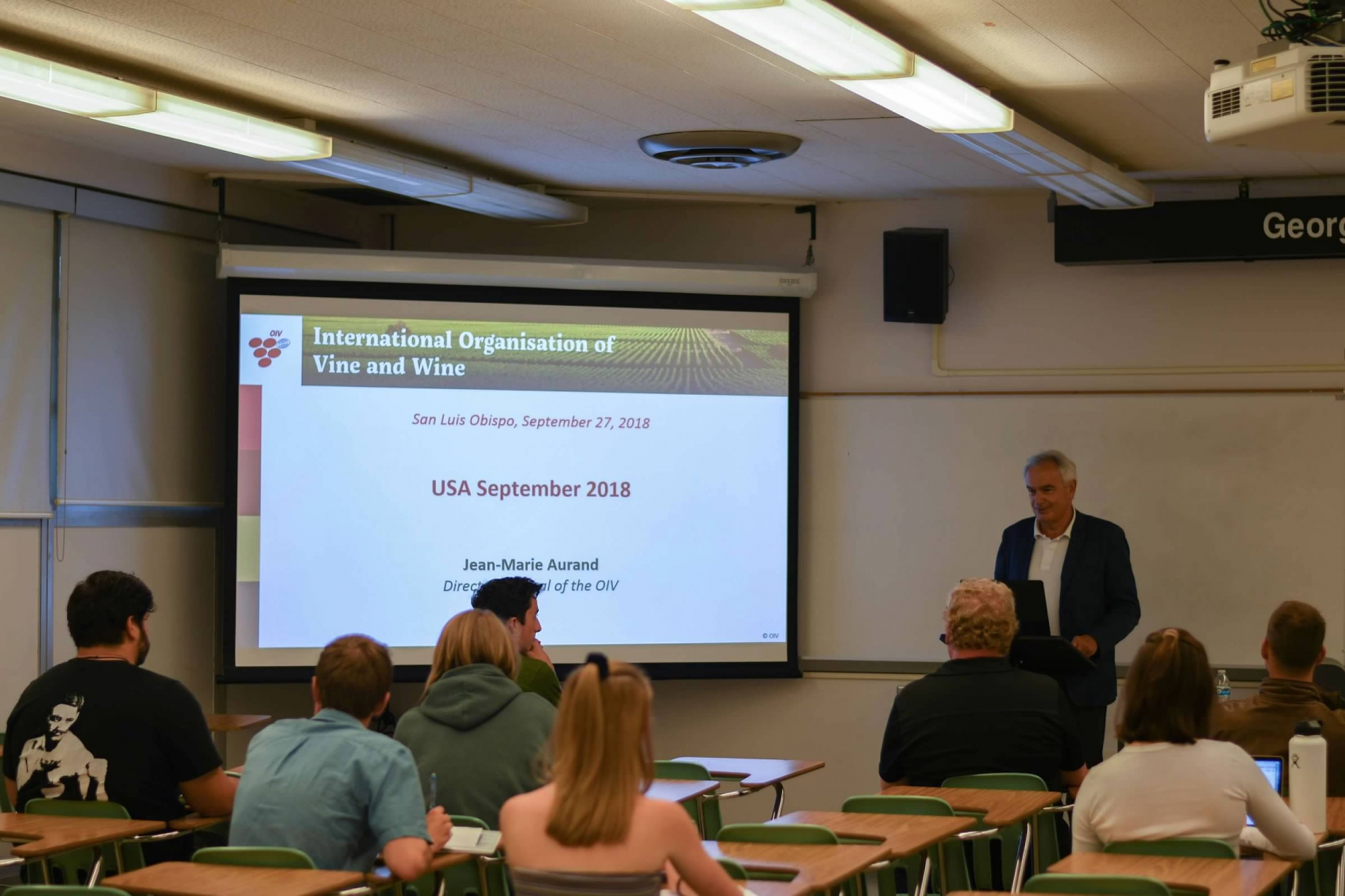
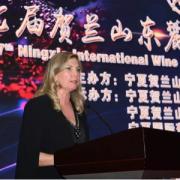
This journey took place during the 7th International Wine Exposition of Helan Mountain’s East Foothill, on 12-15 September 2018.
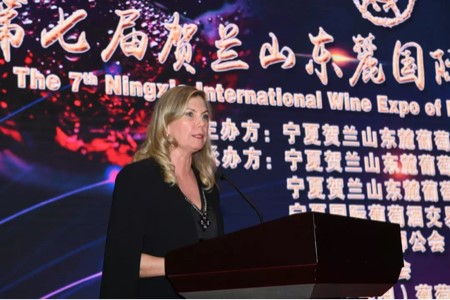
Regina Vanderlinde participated in the opening of the event, for which the theme was ‘Brand Taste Appreciation’, in the presence of local authorities and of Mr Cao Kailong, Director of the Ningxia Grape Industry Development Bureau.
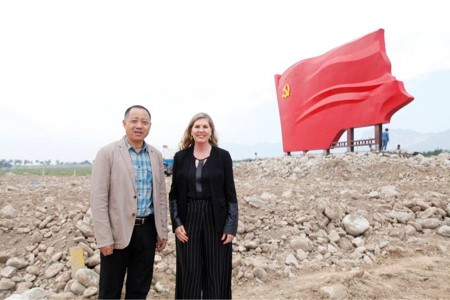
As part of the event, an exposition of wines from different Chinese regions was also organised: the ‘Belt and Road’ at Yinchuan Exhibition Center. Additionally, this trip provided an opportunity for the President to visit several wineries in the region.
During her visit to China, Regina Vanderlinde met with Mr Hao Linhai, former Vice Party Secretary of the People's Government of Ningxia and former President of the Ningxia association of winegrowers. Mr Hao Linhai was awarded the OIV Merit Award during the 40th World Congress of Vine and Wine in May 2017, in Sofia (Bulgaria).
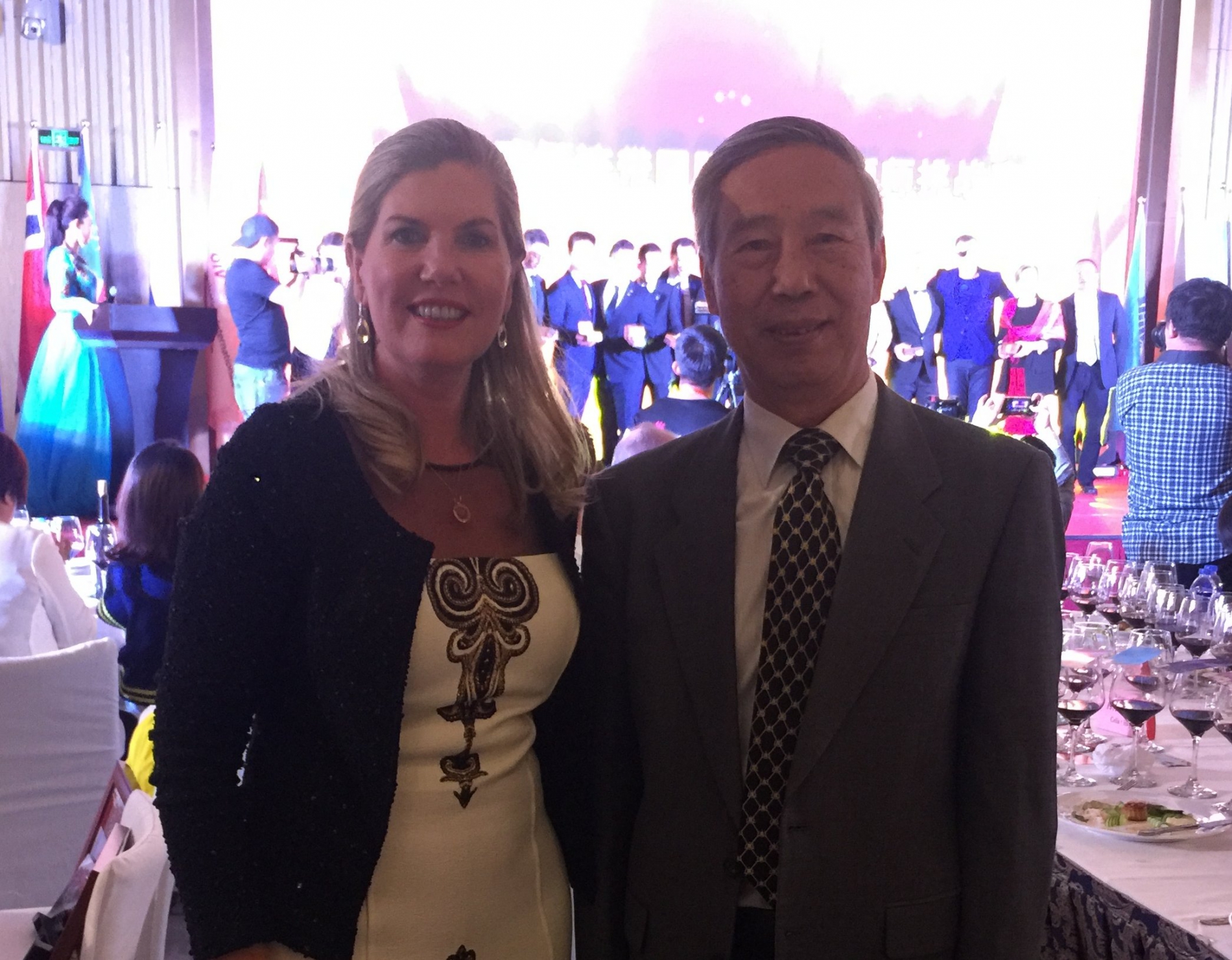
Viticulture in the Ningxia region has seen a very robust expansion, boosted in particular by local authorities. Wine production is focused upon quality and diversity, with over 180 wineries.
This dynamism follows the model of Chinese vitiviniculture as a whole, which has recorded significant development both in terms of table grape production (the top producing country) and the production and consumption of wine (globally the 8th biggest producer and 5th biggest consumer).